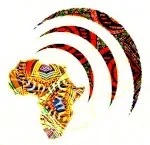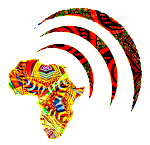Walking Six Hours to Collect Water in Rural Ethiopia
In rural Ethiopia, women and children can walk up to six hours to collect clean water because finding safe clean water in Ethiopia is a struggle.
In many villages in rural Ethiopia, the only times you drink water is after a 6 hour trip to collect clean water. Sounds crazy right? Nevertheless, the crazy part is that is for millions of Ethiopans in Africa the reality is day-to-day real and much harsher than either you or I could relate.
These are the people spending their day looking for water and then going to bed wondering where the next cup of water will come from. Ethiopan women and female children wake up at 6 a.m. before the sun gets too hot and start walking in search of clean safe water.
Still walking at 8 a.m. 2 hours later, no clean water, still walking at 9 a.m. three hours later they finally get to a stream of clean river water. They fill up their plastic Jerry cans of water weighting about 40 pounds when full and began the three-hour walking expedition back home in the peak heat of the day, reaching home at 1 p.m. and knowing tomorrow they will get up and do it all over again the next day.
A Jerry can is a portable fuel and gas can but in many parts of the world, it is used to carry water. Imagine carrying 80 pounds of water not down a paved road but climbing up steep hills and over rocks in a war zone. Walking for water on a daily basis is not only a back breaking physical activity, but is also dangerous. The average distance that women in Africa walk to collect water is 3.7 miles or 6 kilometers.

|
| Water purification location in the Somali district of Ethiopia |
Collecting clean water in Ethiopia is a struggle because walking up to six hours to collect water is normal day-to-day activity.
Ethiopia has one of Africa’s lowest rates of access to water supply, and sanitation despite abundant surface and groundwater resources.

|
| West Africa Water Supply, Sanitation and Hygiene Program |
Ethiopia’s 96 million people, 86.5 million people or 83 percent live in rural areas. A vast majority of Ethiopia’s population lacks adequate access to safe water and proper sanitation facilities. That is 49 million people or 51% lack safe water and 76 million or 79% have no sanitation services.
At most, 49 percent of people have access to safe water, while proper sanitation facilities are available to about 21 percent. Inadequate access to safe water and sanitation services negatively impact health and productivity, especially that of children.
At the 2002 World Summit for Sustainable Development, then-Secretary of State Colin Powell announced the U.S. commitment to the Goals for Sustainable Development. One goal was to reduce by half, the proportion of people without access to safe and affordable drinking water and sanitation” by the year 2015.
To help reach this goal, leading US-based non-governmental organizations working in water and sanitation formed the Millennium Water Alliance. The situation is critical, at least 1.8 billion people worldwide are estimated to drink water that is not protected against contamination from feces.
From 2011-2015 the West Africa Water Supply, Sanitation and Hygiene Program or WASH Millennium Water Alliance goal is to provide water, sanitation and hygiene (WASH) services to approximately 483,000 people; including 83,000 students in 90 schools. Since 2006, the Conrad N. Hilton Foundation has awarded over $14 million to the Millennium Water Program.
Together we build awareness that boost harmony, education, and success, below are more links to articles you will find thought provoking.
- Historical African country names
- Top 20 Largest Countries in Africa
- How many countries does Africa have?
- Paying Money To Tour Slums in Africa
- Land is Not For Women in Sierra Leone
- African Kente Cloth Facts

 Since 2007
Since 2007


